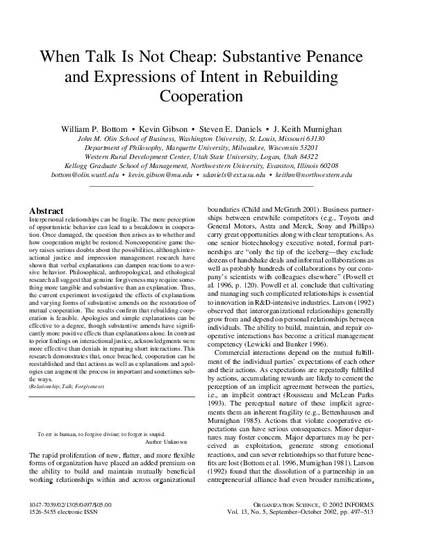
Interpersonal relationships can be fragile. The mere perception of opportunistic behavior can lead to a breakdown in cooperation. Once damaged, the question then arises as to whether and how cooperation might be restored. Noncooperative game theory raises serious doubts about the possibilities, although interactional justice and impression management research have shown that verbal explanations can dampen reactions to aversive behavior. Philosophical, anthropological, and ethological research all suggest that genuine forgiveness may require something more tangible and substantive than an explanation. Thus, the current experiment investigated the effects of explanations and varying forms of substantive amends on the restoration of mutual cooperation. The results confirm that rebuilding cooperation is feasible. Apologies and simple explanations can be effective to a degree, though substantive amends have significantly more positive effects than explanations alone. In contrast to prior findings on interactional justice, acknowledgments were more effective than denials in repairing short interactions. This research demonstrates that, once breached, cooperation can be reestablished and that actions as well as explanations and apologies can augment the process in important and sometimes subtle ways.

Originally published by INFORMS (Institute for Operations Research and Management Sciences). Publisher's PDF available through Organization Science journal.